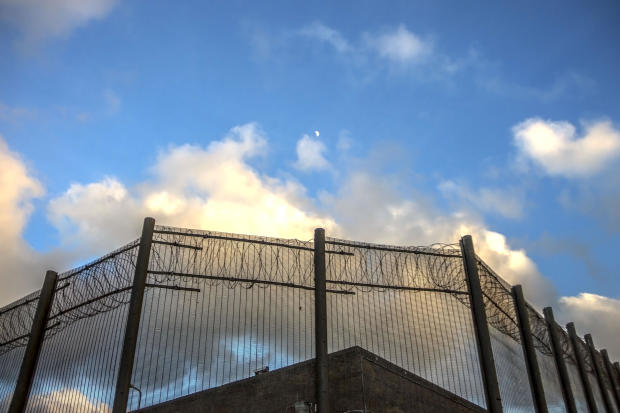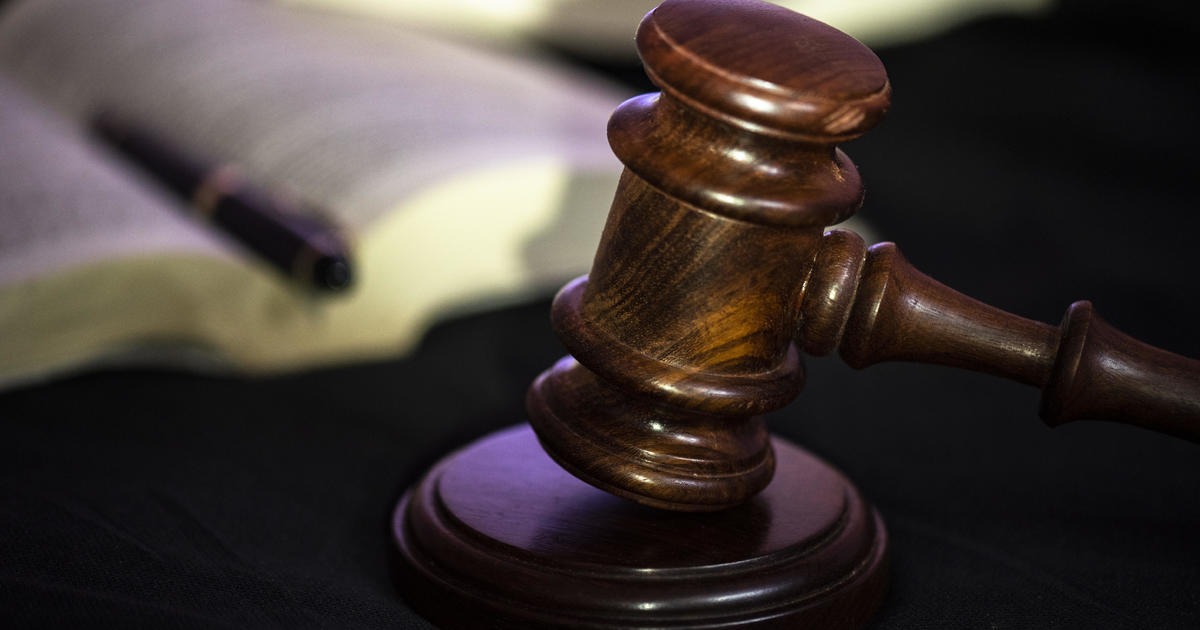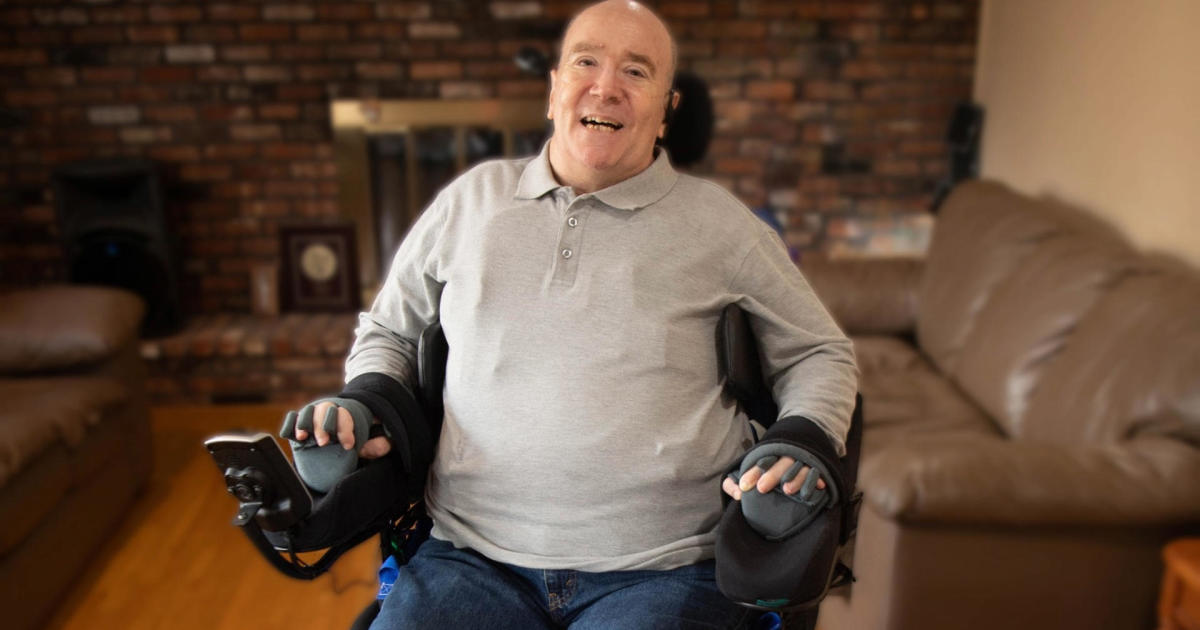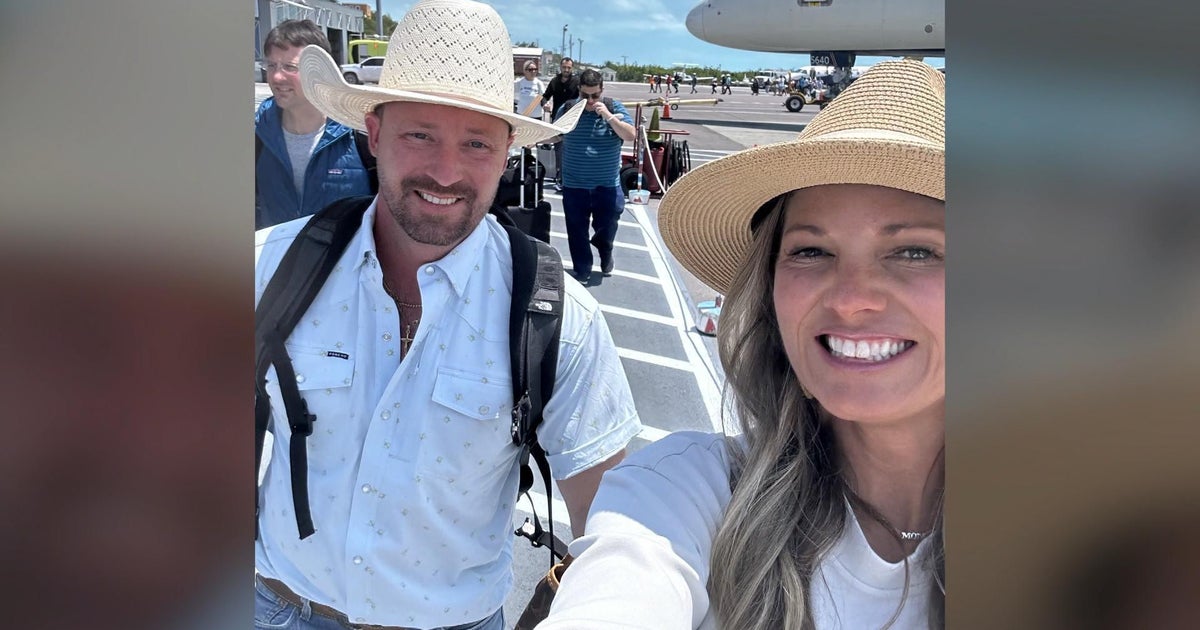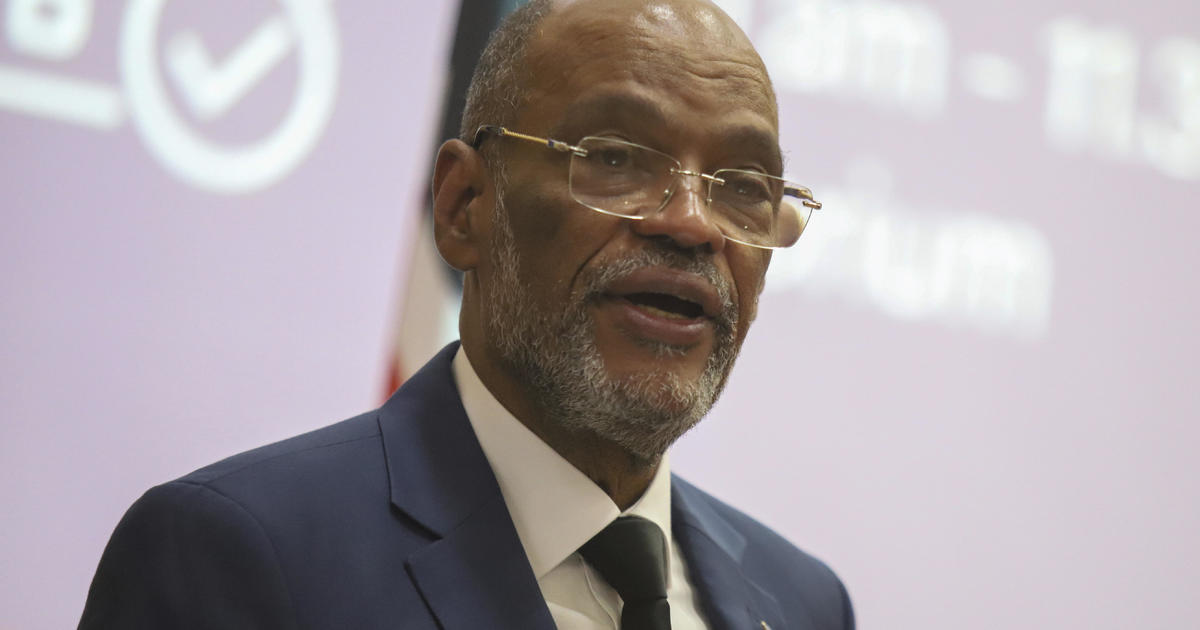Inmates share what life is like inside prison during the coronavirus pandemic
CBS News has been reporting on how the coronavirus pandemic is impacting the nation's prison system, and here, shares the perspectives of inmates, as told by them. Key details of their accounts have been verified by CBS News. They have been edited for length and clarity.
Marybeth Hill, 33
Hill is serving 36-months for possession with intent to distribute. FCI Greenville, Illinois: zero confirmed virus cases. As told to Justin Carissimo.
The first few weeks were very chaotic. We've been on lockdown since April 1. Tensions are running high. There's a lot of uncertainty, especially being incarcerated and not knowing if your loved ones are safe and constantly not knowing from day-to-day whether or not the virus is going to get into our facility.
We spend our days trying to stay as positive as possible, cleaning as much as we can with what we have and trying to uplift each other rather than tear each other down.
I happen to be in a unit with some really God-fearing women and women who are very conscious about trying to maintain some kind of mental health and stability while we're in here. Every morning we wake up, we work out together. We spend a lot of time reading, we pray. That's the one thing I can say about this whole experience that I have been blessed to be with some women who really have strong faith. We try to keep each other encouraged, as much as possible.
We're human, and we make mistakes, and just because we make mistakes, does not mean that our lives are any less valuable than the next person lives. We deserve a fighting chance, too. We want to come home to our families healthy and not have to worry each day whether it's going to be our last.
I was one of the people that were called in the second round for home confinement. They called us in there to let me know that I did qualify. We filled out our re-entry paperwork, just to have new criteria released from the BOP, not even five days later. Since that point on, I have not heard anything else back about home confinement.
I have three small kids and my babies are aways coloring these pictures and they send mail and so I hold on to those things — they keep me motivated to want to come home healthy.
Chad O'Handley, 44
O'Handley is serving 70 years for second-degree murder and robbery. Buckingham Correctional Center, Virginia: 111 confirmed cases. He wrote the following letter to his wife and has since tested positive for the virus.
Guys are walking around sounding congested and coughing, I just have a headache. We had one more high temperature taken out last night. If you reach a hundred you are out. I am still under 98, with the headache.
They are feeding us an emergency menu, as they call it. It's like eating your meals from a vending machine. We get a bag of chips with lunch and dinner, we get these gummy fruit snack things for lunch, and maybe a side of vegetables — mostly junk, though.
That swab up the nose was terrible. A few guys got bloody noses.
Sitting here obsessing over the temperature has taken its toll on me. I'm stressed beyond my limits right now not being able to talk to you about this s***. If you have a temperature or your test comes back positive, they are putting us in the gym, where they set up bunk beds. Just leave me in my cell. It's where I am safest and I have all my stuff. In the gym, we will have nothing.
Stephanie DiCarlo, 35
DiCarlo is serving a 12-year sentence for robbery and firearms charges. FSL Danbury, Connecticut: zero confirmed cases. As told to Justin Carissimo.
I've been in quarantine for six days. The virus has changed everything here. There's no structure, there's no anything anymore. We are now kind of like specimens and lab rats. The attention we get is very minimal because it's chaos up here. We can't communicate with our families like normally. It's very hard.
We don't have computers. We have a telephone, which was just installed a couple of days ago. Everything is shut down here. There's no staff, everybody is sick. All of the inmates are being tested in quarantine day-by-day. We're stuck in rooms, we're stuck in kitchens. We can't even get fresh air.
I thought doing time was hard — this is hard. I don't know if I'm going to call home one day, and one of my family members are going to be gone or if something's going to happen to them. I don't know what's happening moment-to-moment in here — being that we're so limited with communication, I just want my family to keep themselves safe.
I get up every morning when everyone else is sleeping at about 6 a.m. and I read my Bible. Whatever exercise I can do to keep my mind and keep my endorphins moving — it's like a medication for me. My prayer is, at this moment, all I have at this time.
I have a little bit of coffee. One of the officers drops off a breakfast bag with milk and a piece of fruit and — let's call it some sort of liquid eggs. Later, from the window in the kitchen, we're watching all of the men getting shackled and sent down to the men's prison or we're watching them pass by to go to medical to be quarantined.
On April 7, I was called into the lieutenant's office and they told me that I was accepted for home confinement. They told me I have an hour to pack my stuff. The next morning, my case manager came in and the lieutenant came in and told me that I have to leave because I was under review, because I have a violent charge. They said that I have to be pulled and I'm going back to the unit.
My freedom was pulled from me because they feel that I don't qualify — I have clear conduct in seven and a half years. I'm an asset to society, I'm not a threat to society. My case manager told me he doesn't have time to look at my file because he has too much casework and, unfortunately, I'm gonna have to sit in prison until the rest of my time is finished.
Phillip Hill, 63
Hill is serving a 28-year sentence for conspiracy and fraud. FCI Oakdale I, Louisiana: 33 confirmed cases.
I have never been in a war zone before, until now. This has been a most devastating, destructive thing — as you can't see the enemy but you know that it is always around. From every cough that you hear, the sneeze that you see is like a gun firing, at war, you cringe and run to your bunker.
As we sleep 3-feet apart from each other and with our cellmate sick, or our neighbor sick, we are just sitting time bombs waiting for when this is going to happen to me. To that point, we watch our neighbors, in one case, literally our neighbor, in the next cubicle being taken out by medical — only to see on the local news a few days later that he had died.
Seven men have died from here, so far, with untold numbers sick, untold because there is no testing. Many have not complained about having been sick as they did not want to bear having to pack up and go to isolation/quarantine where they would be removed from what little freedom they did have.
We have been on lockdown for over a month now. We only get a few minutes of fresh air a day by walking up to the dining hall to pick up a clamshell hot meal and return to the unit to eat it. We watch the local news to get reports of the dead and to listen for their names to see if we know them. It has been truly tragic. One of the dead was an older guy, 57 years old, who would come up to the chapel, before we went on lockdown, and have me pick out inspiring movies for him to watch.
There is no one here that was sentenced to a death sentence by their judge, yet we are living as if we have a death sentence. One day at a time, faith over fear.
Leonard Black, 51
Black is serving 32 years for bank robbery. Fort Dix FCI, New Jersey: 23 confirmed cases. As told to Justin Carissimo.
The virus has brought a lot of fear in here. I'm in a lower security institution and for the most part, guys here have an out date. It's scaring people, seeing the numbers on the news about the deaths and the cases that are going up, it's making guys worry if they're going to make it out of here after doing their time. If it gets in here, it's like a fire to dry grass.
We've been cleaning up a whole lot. I'm an orderly in the unit and I help clean. We keep spraying some disinfectant-type cleaner around and wipe down the phones.
I'm in a unit with roughly 300 people and social distancing is out the question. It's gotten to the point where staff are scared. They're coming to work because it's an essential job but nobody wants to get the virus.
People need to understand that everybody with what are called violent offenses, they need steps in order to better themselves. A lot of these guys that have violent offenses, they need a chance as well. I've been incarcerated, I haven't had any incident reports. All of us don't have life sentences or death penalties, we want to come home, too.
I'm a volunteer tutor, I help facilitate black history classes, self-esteem classes and health job fairs. With those things that I've learned, I tell new guys that come in, the positives are far better than the negatives that you're trying to get. I'm making this into a positive situation. Certain guys call me the prototype for violent offenders, in terms of what you need to do to get results inside.
If you or your loved ones are living or working in a correctional facility and want to share your story, contact: Clare Hymes at hymesc@cbsnews.com and Justin Carissimo at justin@cbsnews.com.
